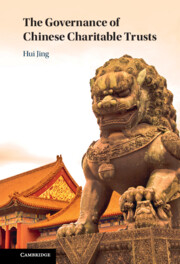In England, Parliament introduced the ‘necessary interest rule’ through the enactment of section 115 of the Charities Act 2011 (England and Wales), allowing ‘any person interested’ in a charitable trust to initiate charity proceedings against defaulting trustees in their administration of charitable assets. Nevertheless, insufficient attention has been paid to this rule despite it being initially enacted in 1853. Parliament has refrained from clearly defining the rule, and the courts have long been grappling with its meaning in determining whether a person is eligible to sue. This paper studies the necessary interest rule by exploring the way in which the courts have interpreted it and the uncertainties surrounding its operation. It is shown that, in the context of charitable trusts, the concern of securing the due administration and execution of the trust lies at the heart of the rule. The final section of this paper discusses the significant theoretical implications of the necessary interest rule. It considers the beneficiary-enforcer debate concerning the conceptual nature of express trusts and highlights the insights that analysis of the rule can provide into this debate.
